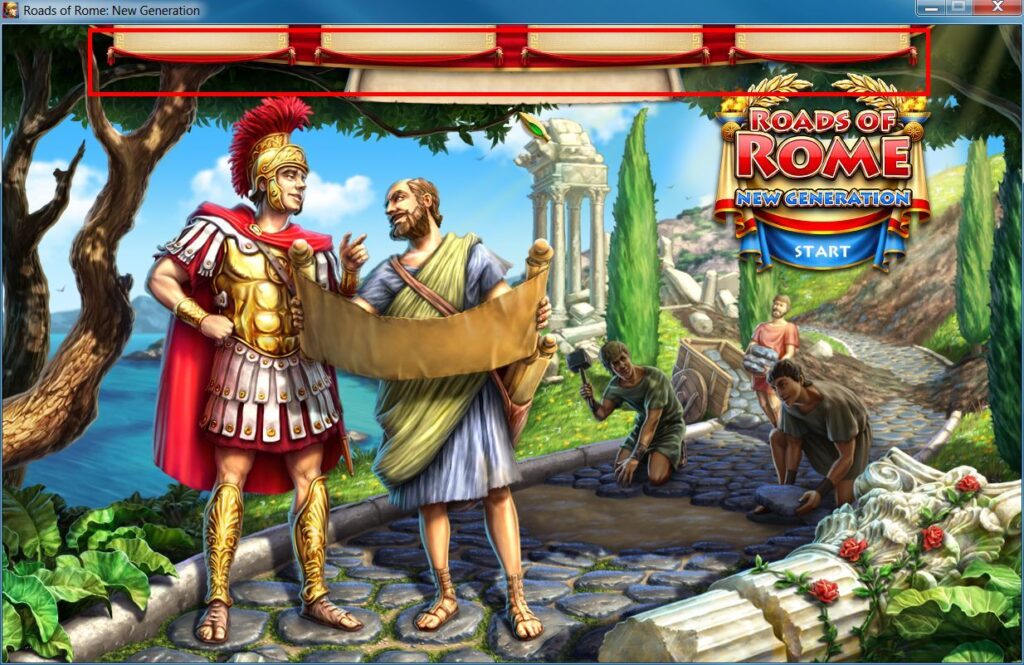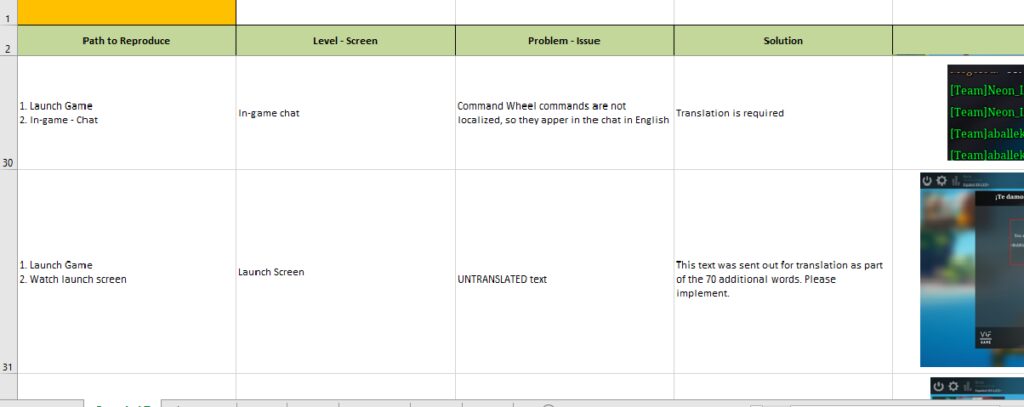
How LQA can make your game more successful
Linguistic Testing, or LQA, is probably one of the things that ranks the lowest on the priority list of many when releasing a game. After all, the game has been localized and reviewed by professional translators, so what could possibly go wrong? Well, quite a lot, actually.
Why would you skip this important step in an already long process and deprive your precious game of the chance to really stand out?
Excellent localization means your game will be more popular on the global market and – let’s not forget it – increases a game’s odds of becoming featured in Google Play or the App Store. Excellent localization exponentially increases the number of players and downloads.
How many linguistic bugs will be found during an LQA depends on many variables.
How well did you prepare/how much reference information did you provide for translation?
Just a few examples:
- Was there a reference build of the game available in the source language?
- Did you provide references for items, such as images or descriptions? A localized item list?
- Did your loc kit include context keys?
- Did you share a Q&A sheet with the whole localization team and answer all questions?
- Did your dialogue file include character information? Who’s speaking, genders, etc.?
- Were there character restrictions?
- Did you include a Style Guide?
If your answer to most questions above is ‘yes’, your game is most likely to pass the LQA test with flying colors, or at least, nearly. Not every aspect of a game can be captured in files and references, testers can get a real ‘feel’ of your game.
Linguistic Testing is assessing the quality of your localized builds. It is so much more than an additional check for semantic, grammatical, or stylistic issues. Linguistic testing means making sure, through playing the game, that the integration of the localized text is flawless.
What do our LQA testers look for?
- Does the translation feel native, is it harmonious, is it culturally adapted, are the dialogues fluent, have the puns been localized? Is the context correct?
- Is the text well implemented on the screen? Are there any unlocalized strings in the build? Are the tutorial and the instructions clear for the player? Is everything compliant?
- Are the ambiguous items translated correctly? Do the words used by the translator match the visual displayed in context to the player? Are there any overlaps that need shortening or corrupted characters?
- And so much more.
Example:

What do we need for linguistic testing?
- A working localized build
- Any available references – If possible, a walkthrough, cheats or in-game currency to save time
- The localized text files in our CAT tool, so we can make any adaptations straight into the text files.
- A bug reporter to enter bugs that cannot be solved in the files and need to be solved by the developers. Gameeleon has its own developed bug reporter. We also work with Jira and any other bug reporters.

Types of Linguistic Testing
Our clients are always in charge of their budgets, so we offer various types of LQA. Every LQA Tester is a native speaker, trained reviewer, and experienced gamer.
The following are first on the checklist to be tested during every LQA:
- UI
- Tutorial and instructions – Help screens
- Menus and submenus
- Items and collections
- Cut scenes and dialogues
- Calls to action and missions
- Credits
- Full Linguistic Testing of the game
Depending on the genre and type of the game, and the provided in-game cheats or currency, we can make an estimation on the number of hours a full LT will take. During a full LT our testers will fully test the game within the allocated hours. They will trigger as many actions and errors as possible and share issues with each other. On average at least 85 – 95% of the game text will have been visible to the tester during this LT.
- Linguistic Testing during a preset number of hours
Our testers will test and play your game as much as they can within the allocated hours, keeping in mind the most important parts of the game that need checking.
- Short Linguistic Testing, or Quality Check – 4 hours of testing
During a Quality Check of 4 hours our testers will check only the most important points on the checklist.
What you will receive back from us after LQA:
- The updated lockit, containing the latest and updated localized files
- A bug report, containing generic and language-specific bugs that we cannot fix (depending on the type of LT, this can be a smaller or larger report)
- Any other comments on the localization of your game that might be handy for release
Smoke Testing
We offer quick smoke testing ahead of LQA of the source build or the localized builds to spot if there are any game stoppers and to get an idea of how long the LQA should take.
Regression Testing
Would you like us to test the new builds after the adaptations have been implemented? We can do that; it’s called regression testing and it will be easy for us to check if the corrected issues are now implemented correctly in the game.
Which platforms can we test on?
We can conduct testing on various devices, as well as on emulators or using developer kits.
Conclusion
LQA or Linguistic testing is an important process that should be considered if you want your localized games to be received with great enthusiasm by your targeted regional players. Skipping this process will undoubtedly lead to your players picking up on small issues that could have been avoided and will lower the ratings of your game. Going that extra mile is what your game and your players deserve!
If you are interested in having your game LQA-ed by us, get in touch and we will discuss the possibilities we can offer to achieve the best possible outcome for your game.
You can contact us via email at an@gameeleon.com or projects@gameeleon.com.
